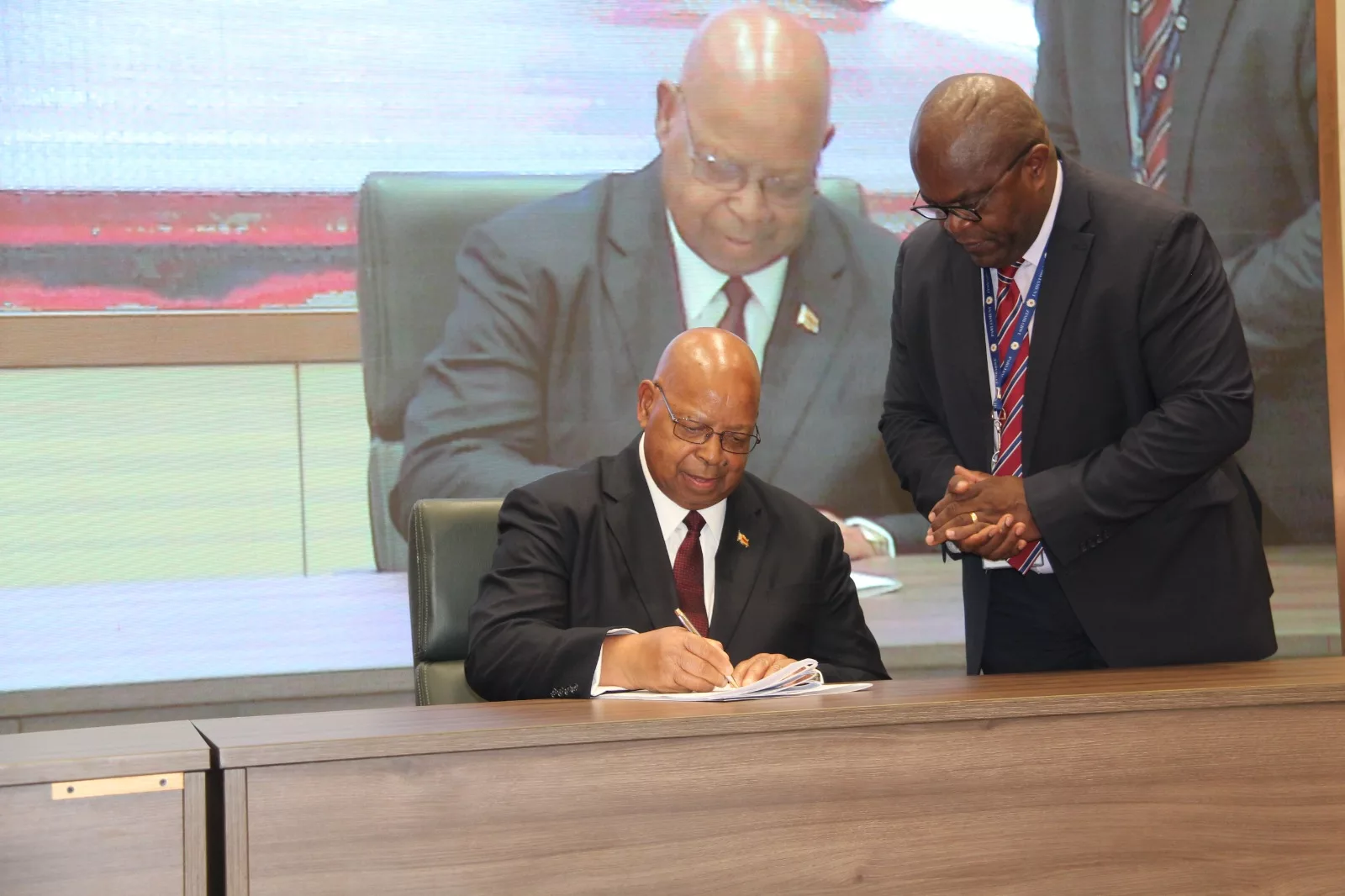|
Getting your Trinity Audio player ready...
|
The launch of the Sexual and Reproductive Health and Rights (SRHR) initiative by the Southern African Development Community Parliamentary Forum (SADC PF) demonstrates a commitment to promoting health equality and equity in pursuit of fostering economic growth and upholding human rights.
In his keynote address, Hon. Advocate Jacob Francis Nzwidamilimo Mudenda, the Speaker of Parliament of Zimbabwe at the launch of the 2023 to 2026 Sexual and Reproductive Health Rights (SRHR) initiative underscored the need to uphold gender equality by recognizing the invariability of sexual health in achieving health equity.
The International Conference on Population and Development (ICPD), held in Cairo, Egypt, underscored the right of all individuals to achieve the highest standard of Sexual and Reproductive Health Rights (SRHR). In 2004, the World Health Organization published a Reproductive Health Strategy which was ratified by 191 Member States at the Fifty-Seventh World Health Assembly which reinforced the centrality of SRHR among societies.
“These international frameworks appear to be grounded in gender equality by recognizing the invariability of sexual health in achieving health equity. The question is: What methodology should be employed to attain health equity despite the cultural and religious impetuses? In dealing with SRHR and similar programmes, it is desirable to innovatively deal with the stereotypes and other negative forces which may impede the success of the programmes,” Hon Mudenda said.
He added that the concept of Sexual and Reproductive Health Rights (SRHR) must be wholesomely appreciated by the citizens. The World Health Organization (WHO) defines Sexual and Reproductive Health Rights as the rights of individuals to make decisions regarding their sexual and reproductive health free from discrimination, coercion, and violence.
This includes the right to access information, education, and services related to sexual and reproductive health in the spirit of informed choices about reproduction in the context of the responsibility to have control over one’s sexual and reproductive life.
Speaking on the same occasion, the Secretary General of the SADC Parliamentary Forum, Ms. Boemo Segkoma said the project has evolved over the years into a partnership that is funded by Sida Government Sweden, (Amb Per Lindgarde) to promote development cooperation in the field of SRHR across the SADC region. (CSE, safe abortion, and other public health related interventions, equity, gender equality, democratic accountability, and human rights).
She said the Project is in line with the vision and mission of SADC and its economic integration agenda which is predicated on sound public health and universal health coverage for all citizens, as cascaded into National Development Plans of actions, and sectoral plans accordingly.
“The regional health perspective of SRHR is of paramount importance to SADC given the various illnesses and ailments which have a cross-boundary nature, HIV/AIDS, TB, and malaria to cite but a few. Under the SRHR Project, solutions are envisaged from a parliamentary perspective to socio-economic and development issues, related to health, trade, environment, and governance, among others which are common to the whole of SADC,” the SADC PF Secretary-General added.
The recent Strategic Plan of the Forum covering the period 2024-2029 makes express mention of the Sustainable Development Goals and Africa Agenda 2063 as a means to demonstrate the commitment of the Forum to help Member parliaments promote SDG 3 about health and well-being and SDG 5 about the promotion of gender equality, and SDG 13 for climate action.
“The SRHR Project can thus be considered as a partnership to galvanise SRHR, HIV and AIDS and governance advocacy and promote Universal Health Coverage by leaving no one behind. The Parliament of Zimbabwe has been consistently acting as a major stakeholder of the SRHR Project over time and fervent congratulations are in order.
“Indeed, in the past, both chambers of Parliament have abundantly interacted with the Project and have assisted in pursuing its core objective. Several milestones have been reached in the past phase, including the enactment of the Marriage Act 2020 which provides for the offence of child marriage and betrothals, and which represents an illustrious example of child protection for the region,” she added.
In her solidarity remarks, Mrs. Miranda Tabifor, UNFPA Zimbabwe Country Representative said the year 2024 is the milestone for the celebration of the 30th anniversary of the 1994 International Conference on Population and Development (ICPD).
UNFPA works with governments, other UN agencies, civil society and donors to develop comprehensive efforts to ensure universal access to sexual and reproductive health care.
It advocates for integrating the delivery of these services into primary health care, so it is as accessible as possible.
“This means, for instance, that a woman could address her family planning, antenatal care, HIV testing and general health needs all in one place. Zimbabwe has made progress in advancing SRHR, and HIV/AIDS including in the reduction of maternal mortality and improving family planning services,” she said.
Speaking on behalf of Mr. Edward Kallon, the UN Resident and Humanitarian Coordinator, Mrs Tabifor said the challenges of sexual and reproductive health, compounded by the HIV/AIDS epidemic, require country-driven, innovative and sustainable solutions.
She added that the United Nations Country Team remains committed to supporting the Government and Parliament of Zimbabwe’s efforts in supporting integrated Sexual Reproductive Health and Rights/HIV/AIDS programmes to improve the health and well-being of young people in Zimbabwe.






